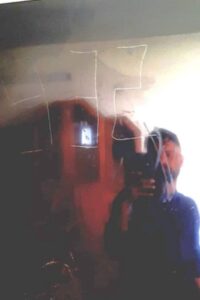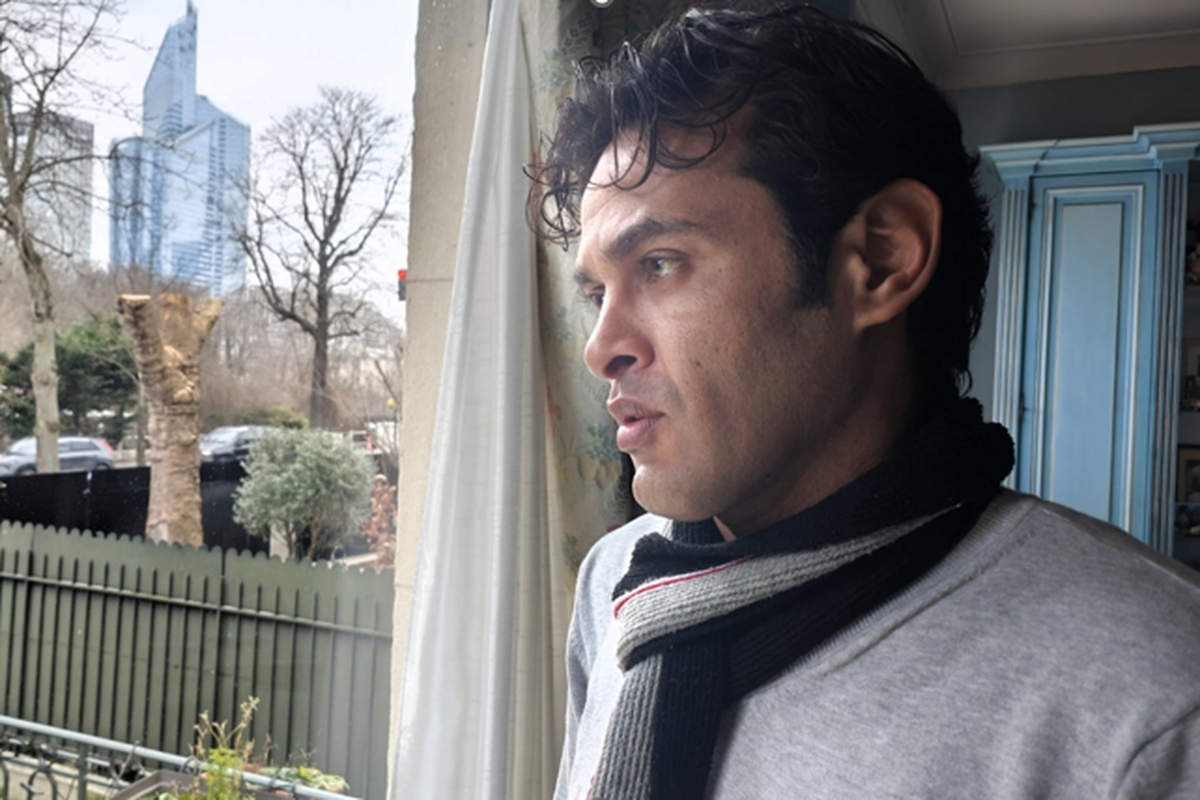Trained as an engineer, Rami Aman spent six and a half months in Hamas prisons. His only crime: trying to establish peaceful relations with Israelis. On a visit to France, he granted us an interview.
By Frédéric Crotta
Today, only fools or utopians believe in peace between Palestinians and Israelis. Rami Aman is neither. “Does he want to kill us all? Where will Trump send us, Jordan, Malaysia or Canada?”
Settled in Gaza in 1992
At 43, this telecommunications engineer, now exiled in Egypt, wants to put all his energy into making a dream come true. To return to Gaza and live in peace in a territory where two states coexist.
Born in Algeria and educated in Kuwait, Rami Aman moved to Gaza with his family in 1992. Even as a teenager, he found it hard to tolerate the violent actions of Hamas in Israel. As well as the recurrent violence on the Gaza Strip. I worked as a “fixer” for many foreign TV channels, and what journalists generally wanted was reports on masked, armed men from Hamas or Fatah. The show. They weren’t interested in the lives of ordinary people.
Daily life in Gaza
This job, he admits, has enabled him to earn a lot of money, but above all to develop a network of contacts, including in Israel. Particularly for technical questions of image transmission and reporting.
“At one point, I stopped working as a fixer and set up a radio station, Palestinian FM. Hamas has always been suspicious of me: anything that doesn’t depend on them depends on Fatah, and they find it suspicious”. This is how Rami became interested in the daily lives of Gazans, especially young people and students. “We were in 2011 at the height of the Arab Spring. I was one of the first to take to the streets and demonstrate openly. Rami is a pacifist and a liberal. “My parents are Muslims, but they never taught me to hate other religions, and they never forced my sister to wear the veil.
An Israeli-Palestinian marathon
Just 10 years ago, the young Gazan engineer began forging links with Israeli citizens via Facebook and social networks. In 2014, Rami succeeded in organizing a double marathon: a parallel race bringing together 70 people on the Palestinian side and 150 on the Israeli side.
This was followed by a trip to the United States as part of a Young Leaders program bringing together executives from the Middle East. In addition to Palestinians, Rami rubbed shoulders with Tunisians, Jordanians and, of course, Israelis. “I’d never met any of them before. Just telephone exchanges linked to my former profession”.
Arrested for the first time in 2017, he found himself in prison in 2020 for six and a half months. “I was accused of being too close to the Israelis. This stay has been a real nightmare”. It took international mobilization to get him out of prison. But for a year, Hamas confiscated his passport: he could no longer travel freely.
Rami then moved to Egypt, where he has lived ever since
While many Gazans were unaware of the terrorist action carried out by Hamas men against Israeli civilians on October 7, Rami admits today that he wasn’t surprised. Everyone could see that they were preparing for the attack. The Israelis too, who had the benefit of ultra-sophisticated technology, starting with drones permanently overhead.
And today? “I still have my house, but my offices are destroyed. He knows this thanks to friends who stayed behind and regularly send him photos and videos. One of them shows a giant screen that cost the equivalent of 2,000 euros and was rendered unusable by Israeli soldiers who engraved their battalion number on it. A totally gratuitous act.
Building understanding between citizens

He is convinced of this today. “Palestinians have had enough of violence. They want to live in peace, they want elections”. Having set up a political party in Gaza in 2011, he doesn’t rule out taking part in the battle, as long as it takes place on a democratic terrain and not on that of weapons. He continues to fight the only battle worth fighting, and dreams of seeing the creation of an international foundation whose aim would be to develop education for young people.
“I know people in Gaza and with them we can instill a new vision. People are no longer willing to give blood, their children’s blood. They’ve lost enough. They’ve suffered enough. They need to be ready for change, they need to be enlightened about what’s good for them. And for that, we need contacts with Israeli society. And to coordinate all this.
Rami is well aware that until the hostage issue is resolved, nothing will get done. Will the reconstruction of Gaza go hand in hand with a new lease of life for the population? He still wants to believe so.

